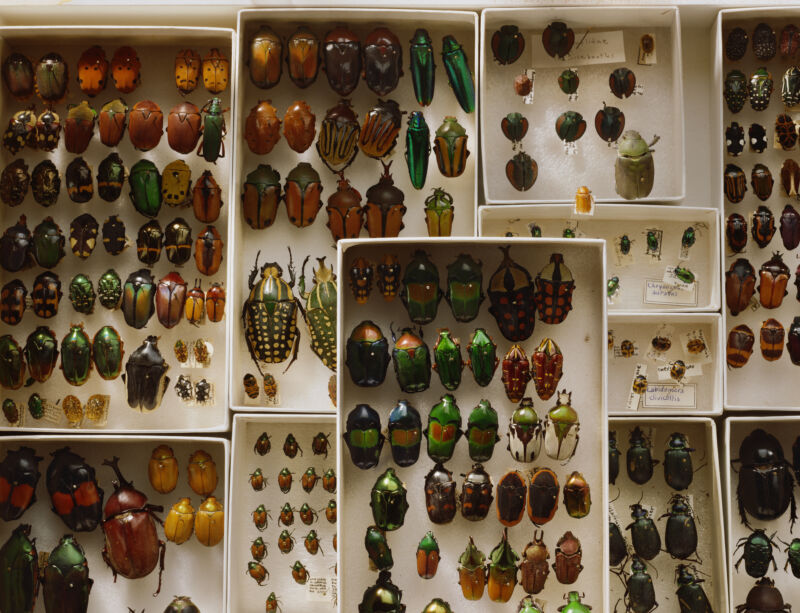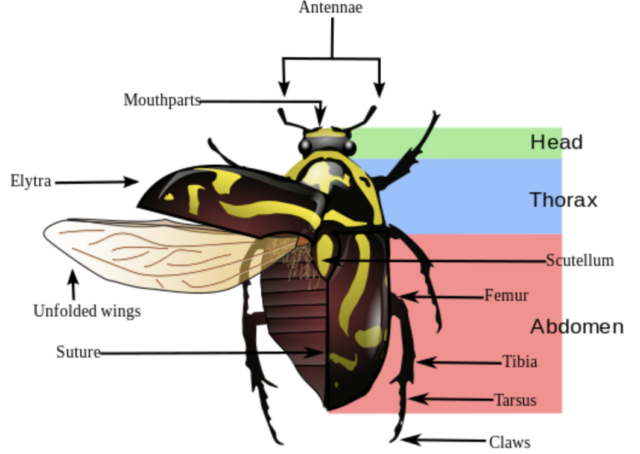
Caroline Chaboo’s eyes gentle up when she talks about tortoise beetles. Like gems, they exist in myriad shiny colours: shiny blue, purple, orange, leaf inexperienced and clear flecked with gold. They’re members of a gaggle of 40,000 species of leaf beetles, the Chrysomelidae, probably the most species-rich branches of the huge beetle order, Coleoptera. “You may have your weevils, longhorns, and leaf beetles,” she says. “That’s actually the trio that dominates beetle range.”
An entomologist on the College of Nebraska, Lincoln, Chaboo has lengthy puzzled why the dominion of life is so skewed towards beetles: The tough-bodied creatures make up a couple of quarter of all animal species. Many biologists have puzzled the identical factor, for a very long time. “Darwin was a beetle collector,” Chaboo notes.

Of the roughly 1 million named insect species on Earth, about 400,000 are beetles. And that’s simply the beetles described to date. Scientists usually describe 1000’s of recent species every year. So—why so many beetle species? “We don’t know the exact reply,” says Chaboo. However clues are rising.
One speculation is that there are many them as a result of they’ve been round so lengthy. “Beetles are 350 million years previous,” says evolutionary biologist and entomologist Duane McKenna of the College of Memphis in Tennessee. That’s an excessive amount of time through which present species can speciate, or cut up into new, distinct genetic lineages. By the use of comparability, fashionable people have existed for less than about 300,000 years.
But simply because a gaggle of animals is previous doesn’t essentially imply it would have extra species. Some very previous teams have only a few species. Coelacanth fish, for instance, have been swimming within the ocean for roughly 360 million years, reaching a most of round 90 species after which declining to the 2 species recognized to be residing as we speak. Equally, the lizard-like reptile the tuatara is the one residing member of a as soon as globally various historic order of reptiles that originated about 250 million years in the past.
One other doable clarification for why beetles are so wealthy in species is that, along with being previous, they’ve uncommon endurance. “They’ve survived at the very least two mass extinctions,” says Cristian Beza-Beza, a College of Minnesota postdoctoral fellow. Certainly, a 2015 research utilizing fossil beetles to discover extinctions way back to the Permian 284 million years in the past concluded that lack of extinction could also be at the very least as essential as diversification for explaining beetle species abundance. In previous eras, at the very least, beetles have demonstrated a placing capability to shift their ranges in response to local weather change, and this will likely clarify their extinction resilience, the authors hypothesize.

